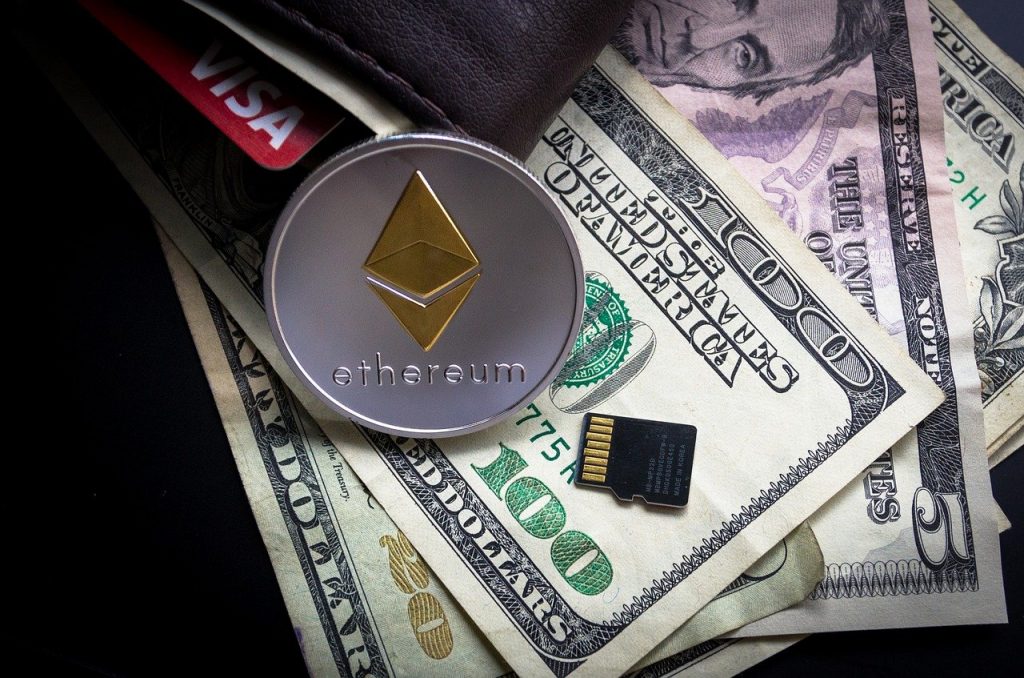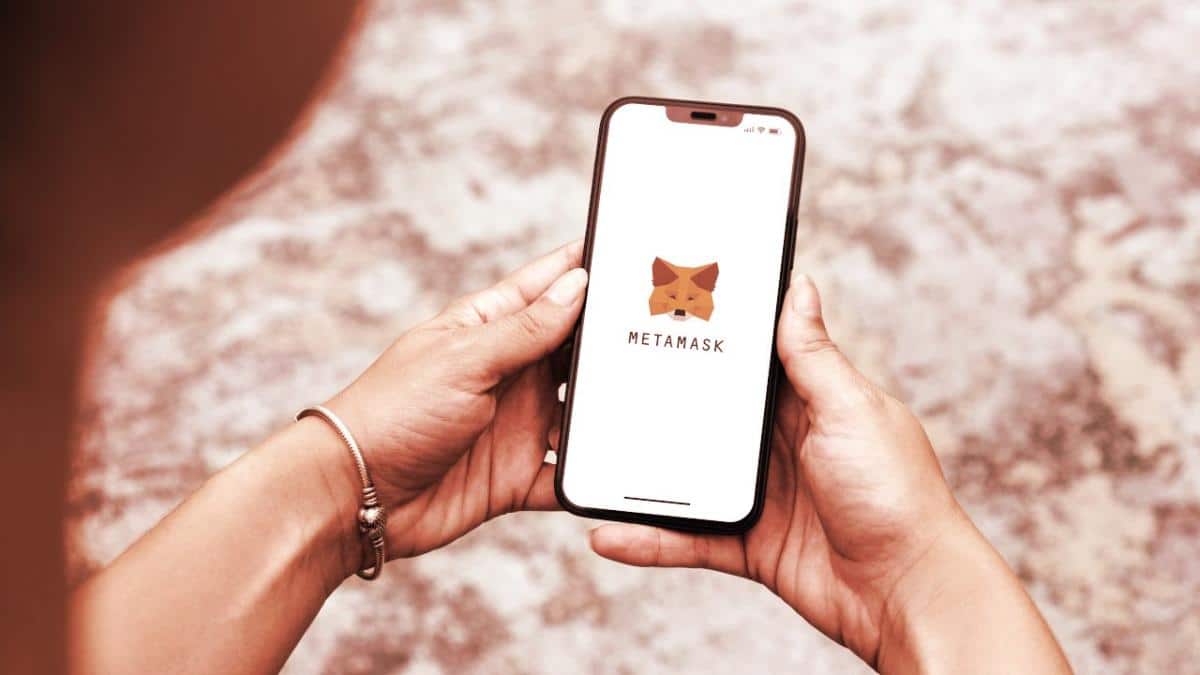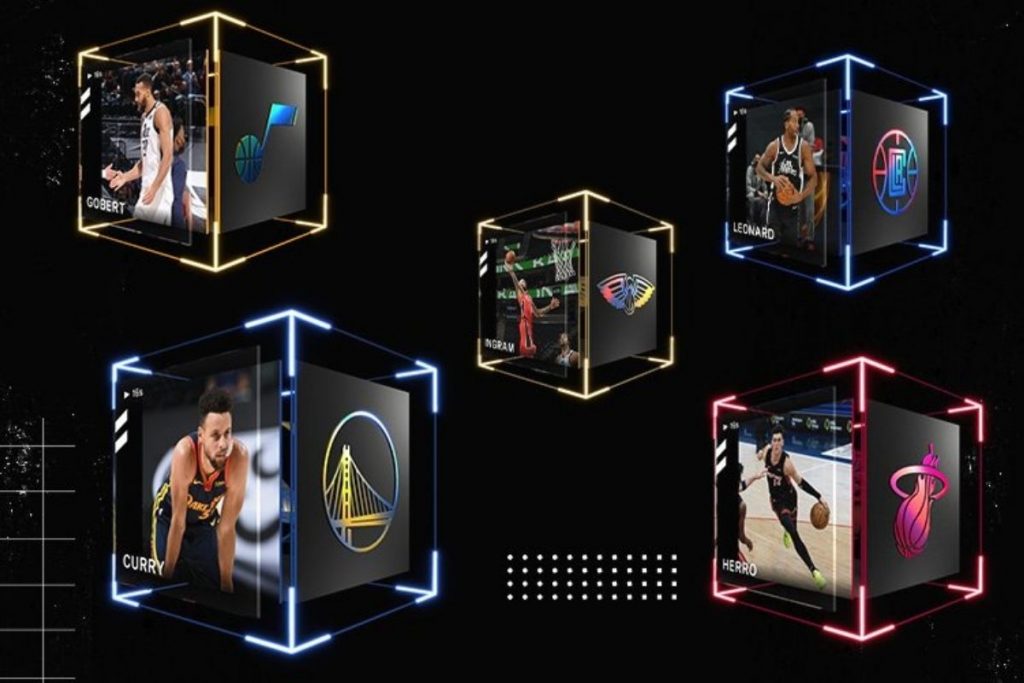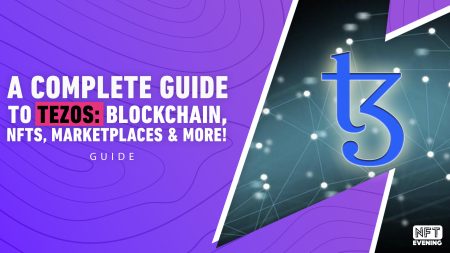Welcome to the ultimate guide on the best crypto wallets, where we break down everything you need to know about these digital treasure chests for your cryptocurrencies and NFTs. We’ll explore the different types of wallets, from the convenient hot wallets to the ultra-secure cold wallets. We’ll even find out what the best crypto wallets are for NFTs!
Plus, we’ll show you how to pick the perfect wallet to suit your needs. We’ll also guide you through the process of buying crypto and NFTs with it. So, buckle up as we dive into the fascinating world of crypto wallets, making it as easy as sending a text message. Let’s get started on your crypto adventure!

What Is A Crypto Wallet
A crypto wallet, also referred to as a digital wallet, is a software application designed for storing private and public keys necessary for interacting with a blockchain network and managing cryptocurrencies. It empowers individuals to transmit, receive, and securely retain digital assets such as Bitcoin, Ethereum, and various other cryptocurrencies.
Crypto wallets can be categorized into two primary groups: hot wallets and cold wallets. Hot wallets are internet-connected and thus susceptible to potential hacking. Whereas cold wallets operate offline, providing a higher level of security.

Various types of crypto wallets enjoy popularity, including desktop wallets, mobile wallets, web wallets, hardware wallets, and paper wallets. Each wallet type comes with its distinct advantages and disadvantages, allowing users to select the most suitable option based on considerations like security, user-friendliness, and accessibility.
It’s worth noting that compatibility between wallets can be advantageous for accessing additional features. However, it’s essential to exercise caution when managing multiple wallets for the same cryptocurrency or token. Doing so may heighten security risks due to the increased number of potential points of vulnerability for revealing your crypto keys.
What Is A Hot Wallet?
Think of a hot wallet as your digital wallet with Wi-Fi! It’s like your everyday wallet, handy and accessible. You use it for cryptocurrencies you use often or trade frequently.
The cool thing is, it’s super easy to use. You can send and receive your digital coins in a snap, no need for a long process like with those cold wallets.
But here’s the catch: because it’s online, it’s like leaving your wallet on a busy street. It’s more exposed to cyber thieves and risks. So, you gotta play it smart! Use strong passwords and two-factor authentication, and don’t stash tons of crypto in there for a long time. Keep it like your pocket change, easy to grab but not your life savings! In the sections below, we will also discuss what the best crypto hard wallets are.
What Is A Cold Wallet?
Imagine a cold wallet as your crypto’s safe haven, far away from the internet’s troublemakers. It’s like the old-school piggy bank, but for your digital coins.Now, cold wallets come in two flavors: hardware gizmos (think USB sticks) and paper notes. What’s cool is that they store your secret crypto keys using old-school, non-digital methods. So, hackers and malware can’t get anywhere near your precious assets.
But, here’s the twist. Cold wallets aren’t the fastest option for everyday crypto moves. They’re more like a treasure chest for your long-term savings.
With hardware wallets, you no longer have to store your NFTs on online servers. For this reason, cold wallets are much more secure than software wallets—you don’t have to worry about someone hacking your online devices. Even if malicious actors steal your wallet, they will need your private key to transfer your assets. Besides, you have the option to restore your coins to a brand new wallet in the event of a theft.
Remember, handling a cold wallet needs some TLC. You gotta be super careful not to lose your keys or damage your hardware. So, treat it like your grandma’s heirloom, and you’ll be all good! In the sections below, you will learn about the best crypto cold wallets out there!
How Do Crypto Wallets Work?
Crypto wallets allow you to send, receive, and store cryptocurrencies like Bitcoin and Ethereum. At their core, they manage your public and private keys which are needed to transact on the blockchain.
When you set up a crypto wallet, it generates a private key – a long string of randomized letters and numbers – that is unique to you. From this private key, a public key is derived using encryption algorithms. The public key can then be further transformed into a public address where you can receive crypto transactions.
Your public address is like your account number, while your private key is like your password. You can freely share your public address to receive crypto, but your private key must be kept secret as it proves ownership of your wallet and allows you to spend your coins.
When sending crypto from your wallet, your private key digitally signs the transaction to authorize it. This signature can be verified against the public key without exposing the private key. This asymmetric encryption is what makes crypto wallets secure. Read on to learn about the best crypto wallets for crypto!
Benefits & Drawbacks
The main benefit of crypto wallets is that you fully control your funds. With your private keys, you can send crypto anywhere at any time without requiring permission from banks or other institutions. No one can confiscate your crypto unless they gain access to your private keys.
However, this means you alone are responsible for securing your private keys. If you lose your private key, you lose access to your crypto permanently. For this reason, it is critical to keep private keys safe through encryption and backups. Take care to avoid scams attempting to steal private keys.
Overall, crypto wallets leverage digital keys to let you independently transact on blockchains like Bitcoin. Handling your own keys allows true ownership of crypto assets but also comes with responsibility to manage keys properly.
Best Crypto Software Wallet
Here are some of the best crypto wallet apps. Take your pick for which wallet you feel is best for crypto trading and NFTs!
-
MetaMask
- MetaMask is one of the most popular digital wallets among NFT investors. It shines as a software wallet due to its seamless integration with Ethereum’s diverse ecosystem. It acts as a secure gateway, granting users effortless access to decentralized applications (dapps), DeFi platforms, and NFTs. With its browser extension and mobile app, MetaMask ensures accessibility across devices.
- What makes MetaMask outstanding is its commitment to non-custodial principles. It never holds user assets; instead, it serves as a secure key holder, with users in full control of their private keys. Setting up MetaMask is a breeze. It caters to both newcomers and seasoned crypto enthusiasts.
- Its versatility and dedication to user control make it an excellent choice for those entering the crypto world and a trusted tool for experienced users.
-
Coinbase
- Coinbase stands out as a versatile software wallet for several compelling reasons. Firstly, its user-friendly interface makes it an excellent choice for both crypto newcomers and seasoned traders. Coinbase offers access to an extensive list of cryptocurrencies, exceeding 10,000 assets, including popular choices like Bitcoin, Ethereum, and Dogecoin. Additionally, Coinbase hosts its native NFT marketplace, allowing users to create, trade, or collect digital collectibles within the platform.What truly sets Coinbase apart is its passive earning opportunities. Users can earn annual interest on a wide range of eligible cryptocurrencies or accumulate crypto rewards by engaging with content in the “Learn” section. However, it’s important to note some downsides, such as relatively high transaction fees and concerns about customer service responsiveness. Moreover, Coinbase holds users’ private keys, which can raise security questions. Despite these considerations, Coinbase’s extensive cryptocurrency support, NFT integration, and opportunities for passive earnings make it an attractive choice for many in the crypto community.

-
SafePal
- SafePal stands out as an exceptional software wallet with a unique approach. What makes SafePal truly impressive is its diverse ecosystem. It offers three interconnected wallet versions: a mobile app, a software wallet, and a hardware device. All three share top-tier security features, in-wallet crypto trading, and staking capabilities, providing users with a seamless and secure crypto experience. SafePal’s simplicity and straightforwardness make it accessible even to crypto newcomers, while its flexibility allows advanced users to switch between different wallet versions. Unlike some alternatives, SafePal simplifies the setup process for both its software wallet and hardware device, ensuring ease of use. While comparing SafePal to competitors like Ledger, it becomes evident that SafePal combines functionality with user-friendliness, offering in-wallet crypto management and a comfortable interface. With support for numerous blockchains and plans for further development, SafePal positions itself as an excellent choice for those seeking versatility, security, and accessibility in a crypto wallet.
-
Rainbow
- Rainbow is a standout software wallet known for its user-friendliness and accessibility in the world of crypto. Its sleek and modern design, reminiscent of popular fintech apps, makes it appealing to users across the spectrum, simplifying the crypto experience. Rainbow’s key features include built-in decentralized swap functionality, facilitating seamless ERC-20 token trades on decentralized exchanges like Uniswap V2. It also supports Non-Fungible Tokens (NFTs), displaying digital collectibles elegantly.One of its standout features is WalletConnect integration, enabling mobile DeFi participation. Additionally, Rainbow offers iCloud backups for encrypted private keys, ensuring user security and convenience. Rainbow’s future plans to launch a browser wallet show its dedication to providing versatile options for users. In essence, Rainbow’s success lies in its mission to demystify crypto complexities, offering a one-click experience for a broad audience, making it an exceptional choice for a user-centric and secure software wallet.
Similarly, some of the other wallets you can check out are AlphaWallet, Pillar wallet, Coinbase Wallet, and Math Wallet.
Best Crypto Hardware Wallet
So, what is the best crypto cold wallet? Here is a list of some of the best crypto hardware wallets, read on and take your pick:
-
Ledger
- Ledger is one of the most trusted hardware wallet providers and is in fact, the pioneer of cold wallets. A Ledger hardware wallet keeps your private key in a certified secure chip, accessible only to you. Reportedly, Ledger is the only hardware wallet certified for security by the French cyber security agency, ANSSI.
- What’s more, these wallets come with the Ledger Live app, using which you can securely access and manage over 1,800 coins and tokens from your devices. Using the app, you can check your portfolio, exchange tokens, send or receive tokens, and much more. As of now, Ledger offers Ledger Nano S, Ledger Nano S Plus, and Ledger Nano X.
- Of these, Nano S is the cheapest, and allows you to install up to three applications on your device. The newly launched Ledger Nano S Plus comes with a larger screen, more memory, NFT integration, and supports over 100 apps.

The Ledger Nano S Plus. Credit: Ledger - Moreover, Ledger has also launched Ledger Stax, a hardware wallet like no other. Ledger Stax is a cutting-edge hardware wallet designed for secure cryptocurrency and NFT management. Its standout features include a curved high resolution E Ink touchscreen for effortless transaction signing. Also customizable lock screens with NFT displays, and a sleek aluminum and plastic design. With support for over 5,000 cryptocurrencies, including Bitcoin and Ethereum, Bluetooth connectivity for wireless convenience, and tamper-evident security, Ledger Stax ensures both versatility and robust protection.
-
Trezor
- Trezor, the pioneering hardware crypto wallet, continues to be a preferred choice for safeguarding cryptocurrencies like Bitcoin and Ethereum. Trezor’s primary advantage lies in its offline storage of private keys, providing robust protection against unauthorized access and cyber threats. The lineup includes the Model T with a touchscreen interface and the budget-friendly Model One.
- Both offer similar core features, with the Model T supporting additional cryptocurrencies. Trezor prioritizes security, evident through tamper-evident packaging, self-installed firmware, and open-source software. Notably, it employs a 24-word recovery phrase and allows hidden wallets for added security. Tor support enhances anonymity, while support for major chains simplifies secure storage. Trezor is ideal for privacy-focused users, the tech-savvy, budget-conscious individuals, and those invested in blue-chip cryptocurrencies. This makes it a reliable and cost-effective choice in the crypto wallet realm.
How to Use Your Crypto Wallet for NFTs
-
Choose a crypto wallet and create an account:
- Now that you have decided what features you need in your crypto wallet, it’s time to choose the most ideal wallet for you. Typically, crypto wallets are available in two types—software wallets and hardware wallets.
- Here are a few things to keep in mind while choosing your crypto wallet:
- – User-friendly interface – Choose a wallet with an intuitive and easy to navigate interface. This makes transacting and managing crypto straightforward.- High security features – Select a wallet with robust security like two-factor authentication, multisig, and cold storage options. This protects your assets.- Wide coin support – Opt for a wallet that supports many cryptocurrencies so you can store all your coins in one place.
– Cross-chain capabilities – Pick a wallet that allows you to manage crypto across different blockchains for maximum flexibility.
– Accessibility across devices – Go for a wallet available on multiple devices like desktop, mobile, and web so you can manage your crypto anywhere.
– Reputable provider – Select a wallet from an established and trusted company known for security and reliability. This reduces risks.
– Reasonable fees – Choose a wallet with low or no fees for transactions and other services to save on costs.
– Open source code – Favor wallets with open source code that is auditable for transparency and security.
– Beginner friendly – If new to crypto, select an easy to use wallet with features to learn the ropes and trade safely.
– Customer support – Pick a wallet with solid customer assistance in case you need help with transactions or troubleshooting.
- – User-friendly interface – Choose a wallet with an intuitive and easy to navigate interface. This makes transacting and managing crypto straightforward.- High security features – Select a wallet with robust security like two-factor authentication, multisig, and cold storage options. This protects your assets.- Wide coin support – Opt for a wallet that supports many cryptocurrencies so you can store all your coins in one place.
-
Buy crypto from an exchange:
- Now that you have selected the right crypto wallet for you, the next step is to buy cryptocurrencies from a crypto exchange. Currently, a number of exchanges are available where you can use your fiat currency (or traditional currency) to buy crypto.
- If you already know which NFT you want to buy, make sure you know which cryptocurrencies the corresponding NFT marketplace accepts.
- Additionally, you can also directly buy cryptocurrency from your wallet.
-
Transfer the crypto to your wallet:
- Once you buy the cryptocurrency from the exchange, the next step is to transfer it to your wallet. Most exchanges would have an integrated wallet or a partner which holds your cryptocurrency. To transfer your coins to your crypto wallet, click on the withdrawal, send, or transfer option on the exchange.
- On the page that opens up, you will have an option to enter the amount you want to transfer and another option to enter your wallet address. You can find this address in your wallet. In the case of MetaMask, this can be found under account details on the browser extension or the app.
- Once transferred, it may take some time for the funds to show up in your wallet, depending on the cryptocurrency you sent. It is also important to note that you will be charged transaction fees, or gas fees, for this transaction. The gas would depend on the network load, which is constantly changing, and will go to the miners.
-
Set up an NFT marketplace account and start buying NFTs:
- With your wallet all set up and funds transferred to it, you are all set to begin your NFT journey. For this, you will first have to choose a suitable NFT marketplace and create an account there.
- Depending on your interests and the kind of NFT you are looking for, there are plenty of marketplaces to choose from. Some of the most popular NFT marketplaces on Etheruem are OpenSea, Rarible, SuperRare.co, and Foundation.
- The first peer-to-peer NFT marketplace, OpenSea offers a range of virtual goods such as collectibles, trading cards, music, game items, and more. It also supports Polygon —you just have to bridge your Eth to Polygon on the OpenSea website.
NBA Top Shot is a popular NFT collection. Credits: NBA Top Shot/Twitter
-
- If you want to buy an NFT, you’re spoiled for choice! Whether its art, music or sport – There is an NFT for everyone! NBA Top Shot, a collectible highlighting famous basketball “moments”, is still one of the most sought after NFT collections. Aavegotchi and Axie Infinity also top the charts as pioneers of cute blockchain games!
Once you have settled on an NFT, only a few clicks are left to make it yours. To complete this, click on the buy/purchase button on the marketplace and follow the prompts. Once the transaction is finalised, the digital asset will be transferred to your wallet. However, it should be noted that it can take some time for the NFT to become visible.
Conclusion
NFTs have transformed the way we buy and sell things in the digital world. They have not only become a fresh means of wealth creation, but also a fundraising tool. Whether you want to dip your toes into this space for the love of art, to earn big, or to support a charity, the choices are aplenty!
All investment/financial opinions expressed by NFTevening.com are not recommendations.
This article is educational material.
As always, make your own research prior to making any kind of investment.









